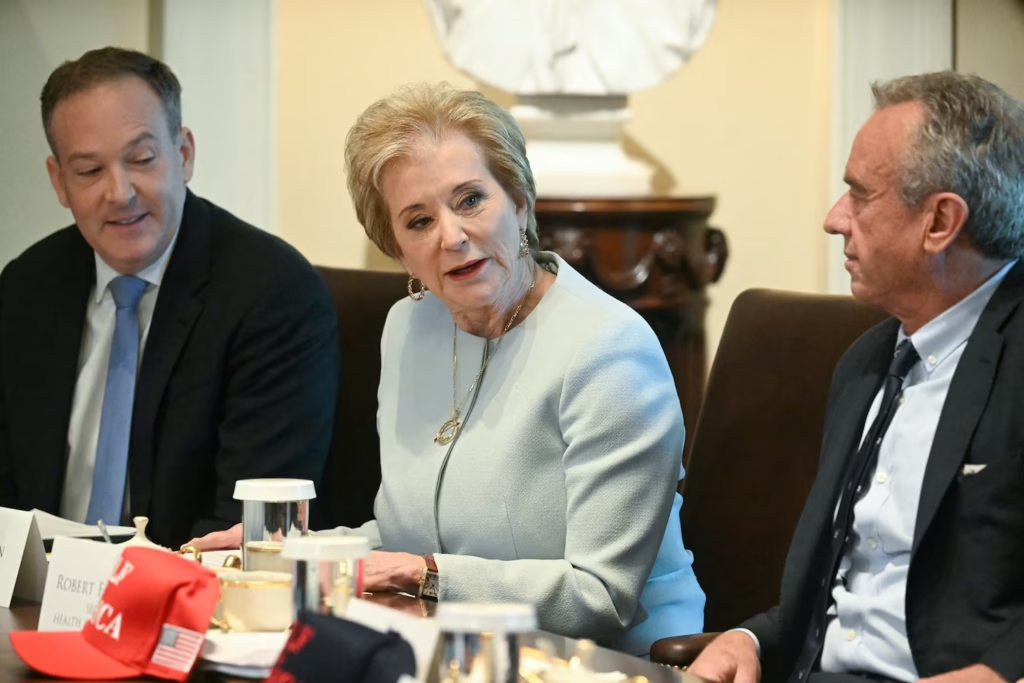The Trump administration has made the decision to not renew $1 billion worth of Biden-era grants aimed at improving mental health services in schools, according to a statement from the Department of Education. This funding, initially designed to address the growing mental health crisis in schools, was allocated under the Biden administration as part of the Bipartisan Safer Communities Act (BSCA). The grant program, which was part of a larger initiative to provide schools with additional mental health professionals, will not be continued, as it no longer aligns with the Trump administration’s priorities.
According to Madison Biedermann, the Deputy Assistant Secretary for Communications at the Department of Education, the grants were intended to increase the number of mental health professionals in schools and on campuses, providing students with the necessary resources to improve their mental health. However, the Trump administration argues that the funding was being used for what they describe as “race-based actions,” including recruiting quotas that they argue have no connection to the core objective of improving mental health. This, the administration suggests, is harmful to students and undermines the goal of the funding.
The grants were initially created to help schools address a critical shortage of mental health professionals, a shortage that became particularly apparent as the COVID-19 pandemic forced schools to switch to remote learning and students faced extended periods of isolation. Mental health issues among young people, already a growing concern, were exacerbated during this time. The funding was meant to help combat these issues by adding counselors, social workers, and other mental health professionals to schools across the country. However, the Trump administration’s decision to discontinue the program comes amid broader efforts to eliminate diversity, equity, and inclusion (DEI) programs in schools, which have been a point of contention in the political arena.
The decision has drawn sharp criticism from some groups, particularly from those in favor of increased mental health support in schools. Randi Weingarten, President of the American Federation of Teachers, condemned the move, calling it a direct attack on children’s well-being. Weingarten expressed concerns that the Trump administration’s decision would set back the progress made in supporting the mental health of students, particularly as the nation grapples with increasing incidents of gun violence and the ongoing effects of the pandemic.
“It’s a slap in the face to educators and families who have worked tirelessly to provide a safe and supportive environment for students,” Weingarten said. “Mental health support in schools is not a luxury. It’s a necessity, especially as we see an increase in gun violence and other tragedies in schools across the country.”
This argument is echoed by Dr. Tish Brookins, a certified social worker based in Jefferson County, Kentucky. Brookins expressed concern that the Trump administration’s decision would have lasting negative effects on the mental well-being of students, particularly those from disadvantaged backgrounds who have historically faced barriers to accessing mental health services.
“It’s devastating to think that the very programs that were designed to help children deal with trauma and stress are now being eliminated,” Dr. Brookins said. “This cut will leave students without the support they need to process their experiences and navigate the challenges they face in their lives.”
The Trump administration’s decision to end these mental health grants also comes in the midst of broader national conversations about gun violence and school safety. The BSCA, which was passed in 2022 following the devastating mass shooting at Robb Elementary School in Uvalde, Texas, included funding for mental health services as a key part of the response to the epidemic of gun violence in schools. The legislation was hailed as a step forward in addressing both the immediate and long-term needs of students and educators in the wake of these tragic events.
President Joe Biden had made expanding access to mental health care in schools a priority, aiming to double the number of school-based mental health professionals, including social workers, psychologists, and counselors. This initiative was seen as essential in addressing the growing mental health crisis among young people, particularly in the wake of the disruptions caused by the pandemic.
However, the Trump administration’s decision to halt the grants is seen by many as a significant step backward. The administration’s arguments, centered around the idea that the funding was being misused for political purposes, have sparked outrage among those who believe that mental health support is essential to the well-being of students. Critics argue that the funding was being used precisely as intended—to support students and provide them with the resources they need to succeed academically and emotionally.
Christopher Rufo, a conservative activist, publicly praised the Trump administration’s decision, claiming that the funding had been used to advance “left-wing racialism and discrimination” under the guise of mental health support. Rufo’s comments have been widely criticized by those who argue that mental health services should not be politicized or used as a battleground for ideological conflicts. In a tweet, Rufo stated, “No more slush funds for activists under the guise of mental health,” further emphasizing his belief that the funding was being used for inappropriate purposes.
Meanwhile, the issue of mental health in schools continues to gain attention from both sides of the political spectrum. The Biden administration’s push to increase mental health resources for students is rooted in the belief that early intervention can help mitigate the long-term effects of trauma, stress, and mental illness. Mental health advocates argue that providing students with the necessary support and resources at a young age is crucial to ensuring their success and well-being later in life.
While the Trump administration’s decision to end these grants has been widely criticized, the issue of mental health support in schools is far from settled. Advocates for children’s mental health continue to push for greater access to services and a broader commitment to addressing the mental health needs of young people. In response to the decision, many are now calling for greater action at the state and local levels to ensure that schools continue to prioritize mental health support, regardless of federal funding.
As the debate continues, one thing remains clear: the need for mental health support in schools is more pressing than ever. Whether it’s addressing the trauma caused by gun violence, the effects of the COVID-19 pandemic, or the everyday stresses faced by students, the importance of providing mental health services to young people cannot be overstated. While the Trump administration’s decision to discontinue these grants may have been a setback, it has also sparked renewed calls for action and greater investment in the mental health of our nation’s students. The fight for better mental health resources in schools will continue, and it is up to all of us to ensure that every student has access to the support they need to thrive.


